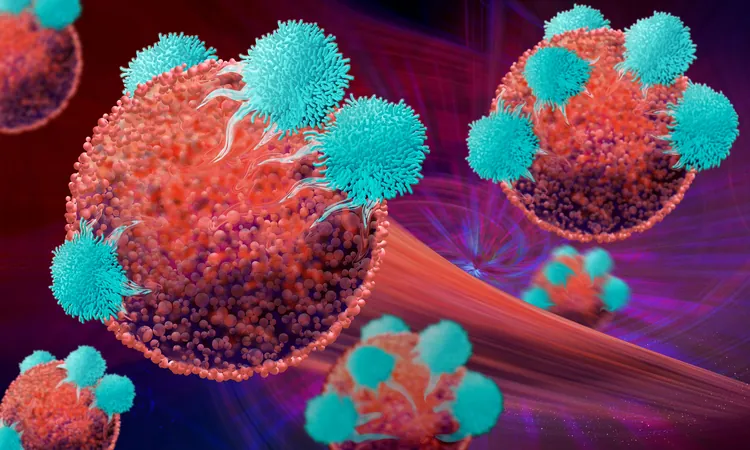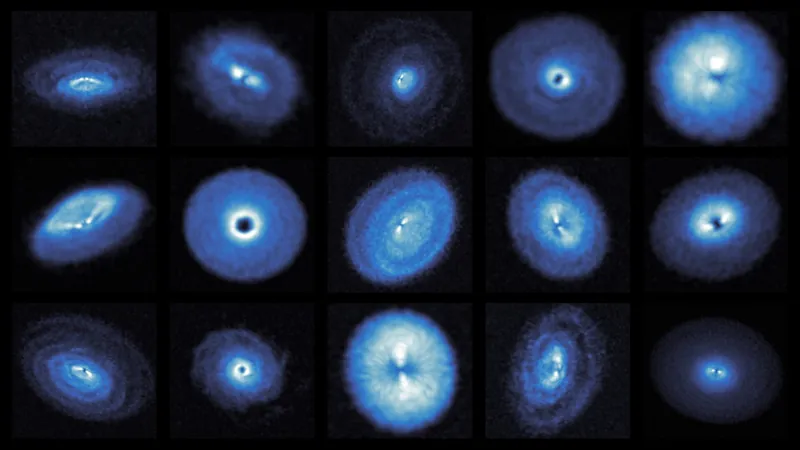
Groundbreaking Study: Neoadjuvant Immunotherapy Combined with Chemotherapy Offers Hope for Limited-Stage Small Cell Lung Cancer
2025-08-31
Author: Wei
A Promising Breakthrough in Lung Cancer Treatment
Exciting new research has revealed that combining neoadjuvant immunotherapy with chemotherapy could be a game-changer for patients battling limited-stage small cell lung cancer (LS-SCLC). This innovative treatment approach shows remarkable potential, as detailed in a recent publication in the journal Thoracic Cancer.
Understanding the Challenge of SCLC
Small cell lung cancer accounts for only 10-15% of lung cancer cases, with the majority diagnosed at an extensive stage, making effective early treatments critically needed.
Immunotherapy: A Beacon of Hope
The adoption of PD-1 inhibitors has already transformed treatments for extensive-stage SCLC, and last year’s ADRIATIC study showcased the anti-PD-1 therapy durvalumab (Imfinzi) as effective in consolidating therapy for LS-SCLC patients following chemoradiotherapy.
New Findings from Comprehensive Meta-Analysis
In this recent investigation, researchers sought to deepen understanding of neoadjuvant immunotherapy's role. They meticulously reviewed existing studies, ultimately analyzing six studies involving 114 patients. The results were striking: a pooled pathological complete response (pCR) rate of 35% and a major pathological response (MPR) rate of 49%. Notably, those receiving more than two cycles of therapy achieved even higher rates of success.
Safety and Surgical Outcomes
The data also revealed that an impressive 95% of participants underwent R0 surgical resection, and while treatment-related serious adverse events occurred in 44% of cases, there were no reported patient deaths during surgery, indicating acceptable levels of toxicity.
Broad Implications for Future Care
What does this mean for the future of LS-SCLC treatment? The combination of immunotherapy and chemotherapy could potentially revolutionize the perioperative care landscape by lowering tumor burdens and enhancing survival rates.
Limitations and Future Directions
However, the researchers urge caution; the small number of included studies and their focus on a predominantly Chinese population may limit the generalizability of these findings. Additionally, many patients were stage III, suggesting that while the results are promising, further diverse studies are critical.
Conclusion: A New Dawn for LS-SCLC Patients
Despite the challenges ahead, this innovative approach could guide future clinical trials aimed at unlocking the full potential of neoadjuvant immunotherapy in treating limited-stage small cell lung cancer, offering renewed hope to patients and their families alike.





 Brasil (PT)
Brasil (PT)
 Canada (EN)
Canada (EN)
 Chile (ES)
Chile (ES)
 Česko (CS)
Česko (CS)
 대한민국 (KO)
대한민국 (KO)
 España (ES)
España (ES)
 France (FR)
France (FR)
 Hong Kong (EN)
Hong Kong (EN)
 Italia (IT)
Italia (IT)
 日本 (JA)
日本 (JA)
 Magyarország (HU)
Magyarország (HU)
 Norge (NO)
Norge (NO)
 Polska (PL)
Polska (PL)
 Schweiz (DE)
Schweiz (DE)
 Singapore (EN)
Singapore (EN)
 Sverige (SV)
Sverige (SV)
 Suomi (FI)
Suomi (FI)
 Türkiye (TR)
Türkiye (TR)
 الإمارات العربية المتحدة (AR)
الإمارات العربية المتحدة (AR)